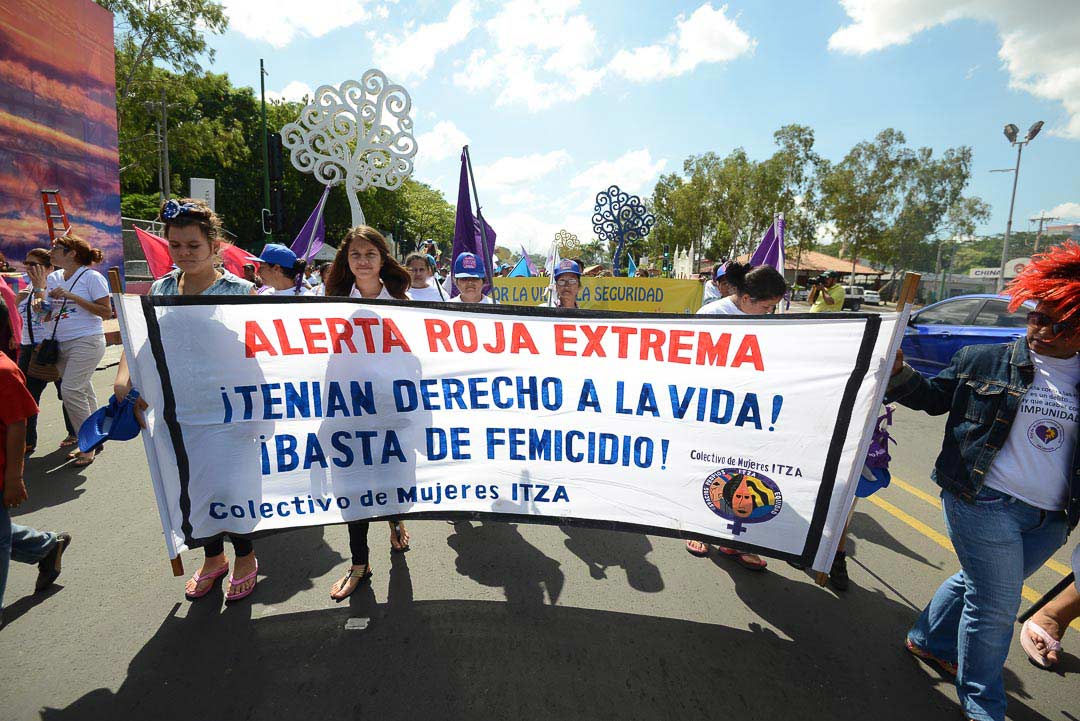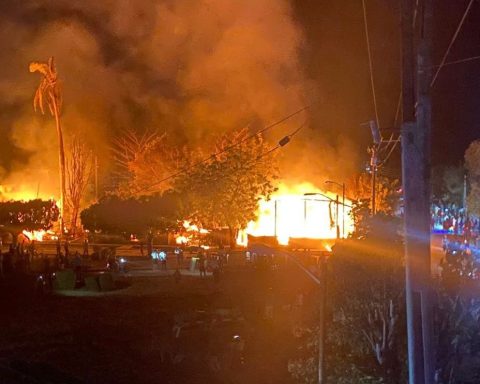The family of Britney Olivas asks for life imprisonment for the main suspect in murdering the 17-year-old Jinotegan teenager who worked as an announcer on the radio station Estéreo Libre and who since she was a child was part of the Jinotega Children’s Communicators.
“My girl, it’s sad to turn on the radio and not hear your voice live and direct,” her mother, Alicia Herrera, wrote on Facebook. From March 10, when she was reported missing until she was found dead two days later, her mother has demanded justice through various posts on that social network.
The Network of Women Against Violence (RMCV) issued a “red alert” in the face of the male chauvinist violence that prevails in Nicaragua, since so far this year ten femicides have been committed “with viciousness and cruelty” for which they declare themselves “outraged in the face of contempt and hatred towards the lives of women, adolescents and girls”.
Like them, the Catholic organization for the Right to Decide (CDD) denounced the femicide of Olivas, who was a month pregnant, and that of nine other women. One of them was Marling Martínez, 21 years old, originally from the Caribbean Coast, and who left a four-year-old boy in the orphanage.
Martínez was reported missing since March 9 and three days later she was found strangled on the banks of the Coco River.
“As a space for the fight against violence, we have raised our voices demanding an end to impunity towards aggressors, rapists and femicides, demanding the application of the laws that protect our rights without seeing responses from the institutions in charge of the application of the law. We are convinced that many of the victims would be alive if Law 779 were applied to prevent and punish violence against women”, lamented the RMCV in a statement.
For the director of Catholics for the Right to Decide (CDD), Marta Flores, these femicides, which have mostly occurred in the Caribbean of Nicaragua, show that we live “in a completely macho country” in which women “do not see us as equals, but we have to experience these situations of violence and we are more vulnerable just because we are women.”
“Sexism kills every day, proof of this is that it is taking lives and although the State knows it, there is no political commitment to put an end to it,” Flores explained.
“There is contempt for women’s lives”
The feminist sociologist and founder of the program La Corriente, Maria Theresa Blandonexplained that these violent deaths demonstrate “contempt for life and women’s bodies” and have “a very large load of misogyny, that is why they are or should be classified precisely as femicides.”
In an interview during the Esta Noche program, Blandón commented that since 2015 “there has been an escalation in femicides,” which make the country one of the most violent in Central America for women. Proof of this is that, last year, almost 250 frustrated femicides were reported and 71 femicides in both 2020 and 2021.
“What we are seeing is that more and more men are planning and executing these crimes against the
women. The pattern is basically the same, they are not outbursts, they watch the victim, they stalk her, as happened, for example with Alice (Robinsonthe first victim of femicide in 2022), that this man (who killed her) went to her house after having called her 200 and so many times in the course of a day, “he explained.
Blandón insisted that many of these men have even threatened them in public, “which somehow makes you see that there is a deliberate action, which denotes absolute power over the lives of these women.”
“That is why we do not accept, for example, that the Police say that they killed her because they had a couple discord, no one kills their partner for having had a controversy, an argument, a pension… these murders are planned and express What these men have learned is that they are the owners of women’s life and death,” she said.
end of impunity
Marycé Mejía, national liaison for the RMCV, told CONFIDENTIAL that “impunity has had a rather alarming, outrageous and considerable increase in attention” and that instead of reducing it with a legal framework, rather, it is increasing.
“In Nicaragua we have serious conditions in the attention to the victim, to support them, to protect them. Rather, there is too much influence peddling that protects the aggressors that makes them go on the run, and that they do not comply or do not pay for the crime committed (…) femicide is the extreme of violence, but before there was psychological violence, sexual violence , patrimonial violence, violence in all its expressions,” said Mejía.
“Isolate them”
For Blandón, many of these femicides occur in places far from the cities because “they are women who live with men in a state of almost isolation,” who “do not even have ties to their families, so they do not have support networks to turn to.” .
“They live in super-isolated areas that would have to walk two or three days to file a complaint and normally they have no support or resources to do so and they are places where the State does not exist, when most there are small churches, in which sometimes the same evangelical pastors have very sexist speeches that call on women to endure violence, to stay together with these men, even if it is in abusive relationships, “he declared.
Since 2020, the Government announced the reopening of the Police Stations for Women and Children. However, the sociologist believes that “they do not fully comply with the role they should have” because when they report they realize that “they do not have officers trained to care for the victim, they do not have the material technical resources
to carry out the investigation process in a timely manner and there is no longer an institutional route that is activated to attend to the victims.”
Another problem identified by Blandón is that victims of gender violence continue to be forced to mediate in many cases. “Victims are supposed to always be willing to forgive, even when they have been attacked (…) then society becomes very compassionate with the aggressors and they become very inquisitive with the victim,” he said.
“There is a tendency that then the perpetrators have become victims and the real victims who are
those who have suffered this violence are presented as vindictive women or women who want to harm men. This is a trap and a trap that has cost many women their lives, ”she lamented.

















